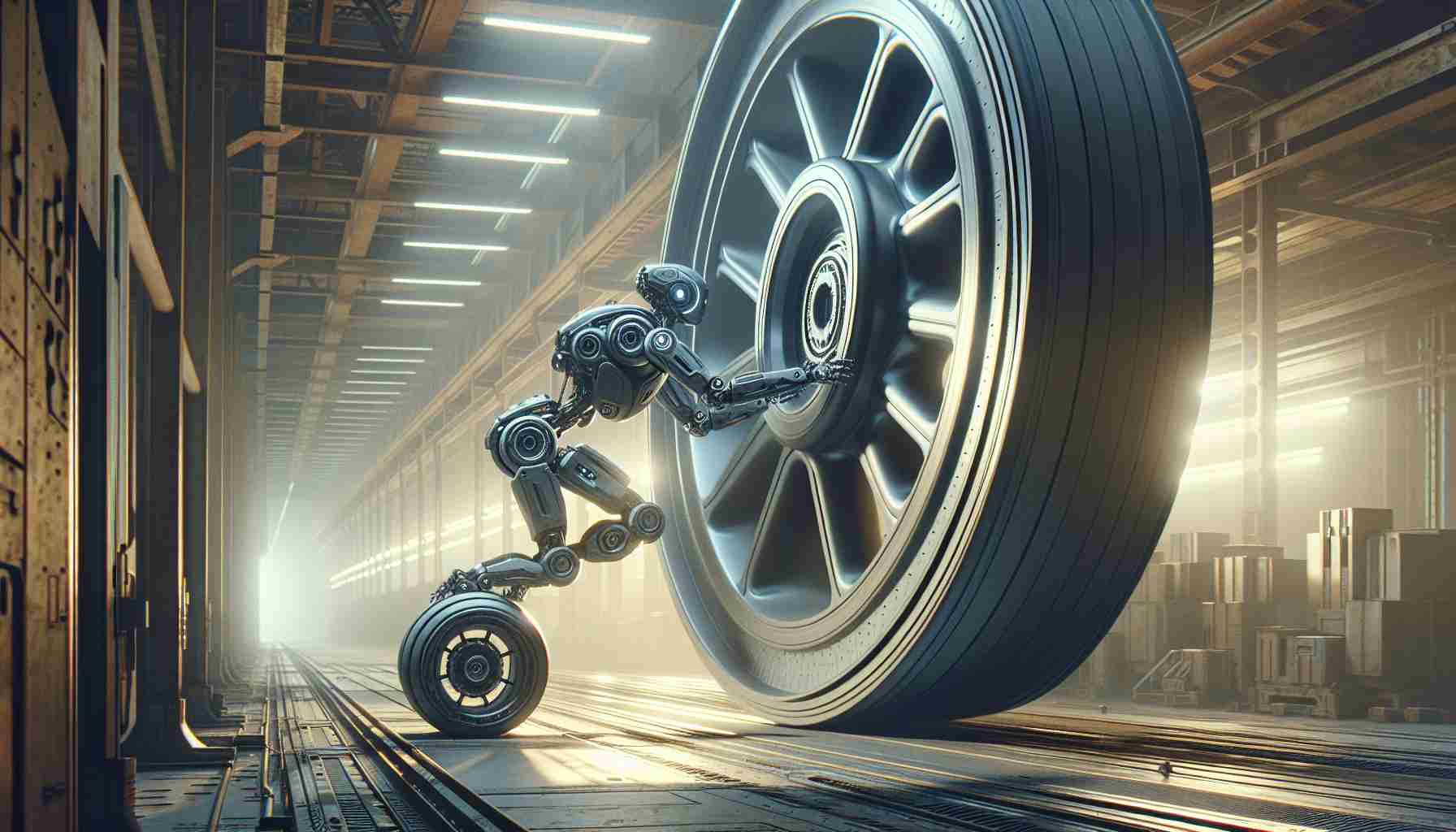Trailblazing Technology in Robotics
A revolutionary quadrupedal robot is capturing attention with its unique wheel design, allowing it to maneuver over challenging terrains effortlessly. The Chinese robotics company DEEP Robotics recently unveiled its impressive creation, the “Lynx,” which is built for demanding environments including construction sites, utility inspections, and emergency rescue missions.
In an engaging promotional video, the Lynx showcases its incredible abilities. It zips down a steep, tree-lined slope and then scales a rock wall over 30 inches tall with ease. The versatility of the Lynx shines as it can adapt its mode of travel, transitioning from a two-legged walk on rugged surfaces to a speedy four-wheeled dash on smoother paths, hitting speeds of up to 11 mph.
Equipped with a high-definition camera, the Lynx streams live video back to operators—enhancing its utility for security monitoring or remote inspections. DEEP Robotics has developed specialized artificial intelligence for the Lynx, allowing it to navigate obstacles proactively using advanced reinforcement learning techniques.
With a battery runtime of three hours, operators can quickly swap batteries during operation, ensuring minimal downtime. Despite its robust capabilities, the Lynx is rated IP54, which means it can withstand dust and a light spray of water but isn’t fully waterproof, limiting some outdoor uses. Now available for purchase, the Lynx reflects DEEP Robotics’ ambition to innovate further in the energy, mining, and rescue sectors.
Unleashing New Frontiers: The Lynx Quadrupedal Robot Transforms Robotics
Trailblazing Technology in Robotics
The world of robotics is witnessing a transformative breakthrough with the introduction of DEEP Robotics’ latest innovation, the “Lynx.” This quadrupedal robot is not just another addition to the tech landscape; it is designed to face the toughest challenges across a variety of fields including construction, utility inspections, and emergency rescue operations.
Features of the Lynx
The Lynx is engineered with a pioneering wheel design that allows it to traverse rugged and uneven terrains with remarkable agility. Its capabilities are best showcased in a promotional video where the robot speedily descends steep slopes and ascends rock walls over 30 inches in height. This bipedal and quadrupedal flexibility enables it to adapt its movement style according to the surface it is navigating. On smoother paths, Lynx can achieve impressive speeds of up to 11 mph.
Additionally, the Lynx is equipped with cutting-edge technology, including a high-definition camera that provides live video streaming back to operators. This feature significantly enhances its applications in security monitoring and remote inspections, making it a versatile tool for various professional fields.
Advanced AI and Navigation
One of the standout features of the Lynx is its specialized artificial intelligence, which has been developed using advanced reinforcement learning techniques. This allows the robot to proactively navigate obstacles and make real-time decisions while traversing challenging environments.
Battery Life and Durability
The Lynx boasts a battery runtime of three hours, which can be extended through quick battery swaps during operation to minimize downtime. However, it should be noted that while the robot is rated IP54 for dust and water spray resistance, it is not designed to be fully waterproof, which may limit its use in particularly wet conditions.
Pricing and Availability
DEEP Robotics has officially launched the Lynx and it is now available for purchase. The pricing details have not been explicitly stated in promotional materials but are expected to reflect its advanced technology and capabilities.
Use Cases and Market Trends
As industries increasingly lean towards automation and robotics, the demand for versatile robots like the Lynx is on the rise. In construction, the ability to navigate rugged terrains with both speed and precision makes it a valuable asset. Additionally, with the influx of remote inspection needs in utilities, the high-definition streaming capability offers significant advantages.
Pros and Cons
Pros:
– Adaptability in movement (bipedal and quadrupedal).
– High-speed performance on varied terrains.
– Real-time live video capabilities enhance operational efficiency.
– Specially designed AI for obstacle navigation.
Cons:
– Limited battery life of three hours without battery swap.
– IP54 rating may restrict use in heavy rain or wet conditions.
In conclusion, the Lynx from DEEP Robotics marks a significant advancement in the field of robotics, offering innovative solutions for tough operational environments while setting the stage for future developments in energy and mining sectors, as well as emergency response initiatives. For more information on the technology and features of the Lynx, you can visit the official DEEP Robotics website at link name.
